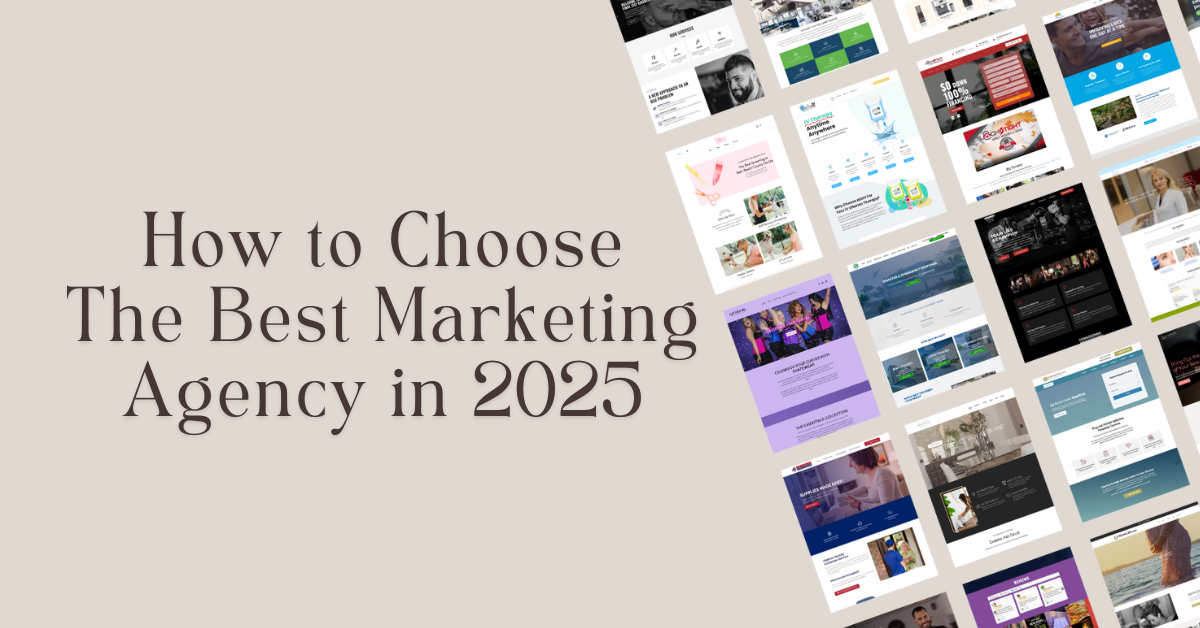In today’s fast-paced digital age, social media has become a crucial part of the healthcare industry, changing the way information is shared and consumed. This change brings significant opportunities and challenges, especially for behavioral health facilities. As digital communication continues to evolve, the need for a dedicated social media manager has never been more clear.
Behavioral health facilities have specific challenges that require strategic management of their online presence. A skilled social media manager can effectively navigate these complexities by:
- Addressing misinformation
- Combatting stigma associated with mental health
- Enhancing community engagement
This article explores why every behavioral health facility needs a social media manager, discussing the important role they play in reaching out to more people, improving interactions between patients and providers, and creating an inclusive community conversation. The goal is to emphasize the significance of social media in improving both the efficiency of operations and the impact on the community of behavioral health services.
The Digital Transformation in Healthcare
The rise of digital communication in healthcare has been nothing short of revolutionary. Gone are the days when patient interactions were limited to face-to-face consultations and telephone calls. Today, healthcare embraces a wide range of digital platforms, allowing for seamless and efficient communication that knows no boundaries.
The Role of Social Media
Social media has become a game-changer in redefining how patients and providers interact. Platforms like Facebook, Twitter, and Instagram have evolved from being mere social networks to becoming essential tools for healthcare engagement. They facilitate real-time updates, appointment scheduling, patient education, and community building. This shift empowers patients with instant access to information and fosters a more dynamic dialogue with healthcare providers.
The Importance of Adapting to Digital Trends
For behavioral health facilities, adapting to digital trends is not just an option but a necessity. Embracing these changes enhances patient engagement by meeting individuals where they already spend much of their time—online. Facilities can leverage digital marketing strategies tailored to specific audiences, ensuring that their messages resonate effectively. Ignoring these trends risks alienating tech-savvy patients who expect modern solutions to their healthcare needs.
Argon Agency’s Approach
Argon Agency understands the critical role that effective social media management plays in navigating this digital landscape. We offer customized strategies that align with each facility’s unique goals. As healthcare continues to embrace digitization, those who adapt will thrive in delivering impactful patient experiences and outcomes.
The Role of Social Media in Behavioral Health
Social media platforms have become crucial in the field of behavioral health, acting as catalysts for mental health awareness and stigma reduction. By using these online channels, behavioral health facilities can actively engage in fighting against the widespread stigma surrounding mental health issues. Platforms like Facebook, Instagram, and Twitter enable the sharing of accurate information and stories that challenge stereotypes, creating a more informed and compassionate public.
Promoting Peer Support and Information Sharing
One of the key aspects of social media is its ability to serve as a tool for peer support and information sharing. Online communities provide individuals struggling with mental health challenges a space to connect with others who have similar experiences. This virtual friendship offers emotional support and encouragement, often unavailable in offline settings. For example, private Facebook groups or Reddit forums dedicated to mental health topics allow users to share personal stories, coping strategies, and resources in a supportive environment.
Improving Access to Mental Health Resources
Additionally, social media plays an important role in improving access to mental health resources for underserved populations. By using targeted campaigns and strategic content distribution, facilities can reach individuals who may not have access to traditional healthcare services. Social media makes it possible to share information about available services, helplines, and crisis intervention resources directly with those who need them most.
Expanding Reach Through Digital Presence
The strategic use of social media by behavioral health facilities highlights its potential not only as a communication tool but also as a powerful force for community support and engagement. This online presence allows facilities to extend their reach beyond geographical boundaries, ensuring that access to essential mental health resources is fair and inclusive.
Key Benefits of Social Media for Behavioral Health Facilities
Social media platforms have become invaluable tools for behavioral health facilities seeking to enhance their outreach strategies. By leveraging targeted social media campaigns, these facilities can effectively reach potential patients and their families. This approach allows for tailored messaging that addresses specific needs, increasing the likelihood of engagement and connection with those seeking mental health support.
1. Creating Educational Content
Creating educational content about mental health issues is another critical benefit. Platforms like Facebook, Instagram, and Twitter provide opportunities to disseminate information in formats that resonate with diverse audiences. Infographics, videos, and interactive posts can simplify complex topics, making them accessible and engaging. By educating the public on mental health matters, facilities not only raise awareness but also reduce the stigma associated with mental health conditions. For instance, sharing mental health best practices can be a valuable resource for both patients and the community.
2. Promoting Services and Events
Promoting services and events through effective social media marketing strategies is essential for behavioral health organizations. Social media managers play a pivotal role here by crafting compelling narratives around the unique offerings of a facility. Whether it’s a new therapy group or an upcoming workshop, strategic promotion ensures these initiatives reach the right audience at the right time.
3. Why Every Facility Needs a Social Media Manager
Incorporating these techniques into daily operations underscores why every behavioral health facility needs a social media manager. These professionals possess the expertise to navigate digital landscapes efficiently, ensuring that online efforts translate into real-world outcomes. The impact of their work extends beyond mere visibility; it fosters community engagement and enhances access to crucial mental health resources.
Moreover, as we delve deeper into the realm of digital communication, it’s essential to understand the standards for technology in social work practice. These guidelines can help ensure that the use of social media aligns with professional ethics and standards.
Finally, while social media serves as a powerful tool for outreach and education, it is crucial to remember that it should complement traditional methods of therapy and support rather than replace them. As highlighted in various studies including one published in PMC, a balanced approach towards mental health treatment often yields the best results.
The Responsibilities of a Social Media Manager in Behavioral Health Facilities
The role of a social media manager in behavioral health facilities is critical, demanding a strategic approach that blends creativity with ethical responsibility.
1. Crafting Relevant and Engaging Content
Crafting relevant and engaging content is a primary task, requiring strategies specifically designed for mental health organizations. This involves creating material that resonates with the audience while adhering to strict ethical standards. Content must be informative, empathetic, and sensitive to the unique needs of individuals seeking mental health support.
2. Managing Online Reputation
Managing an organization’s online reputation is another essential responsibility. Effective online reputation management practices are vital in addressing concerns or negative feedback. A social media manager must respond promptly and professionally, embodying the facility’s values and maintaining trust with the community.
3. Enhancing Patient Engagement
Patient engagement is enhanced through innovative strategies utilizing social media channels. Interactive features such as live Q&A sessions, webinars, and community forums can foster a supportive environment for patients. These tactics not only engage patients but also create a platform for peer support and shared experiences.
In the dynamic landscape of digital communication, a skilled social media manager is indispensable for behavioral health facilities. By crafting thoughtful content, managing reputations with integrity, and employing creative engagement tactics, they ensure that the facility effectively connects with its audience while upholding the highest standards of professionalism and care.
Addressing Privacy and Confidentiality Concerns When Using Social Media in Healthcare Settings
The rise of digital platforms brings with it the critical task of safeguarding patient confidentiality, especially within behavioral health facilities. Privacy violations pose significant risks when sensitive information finds its way online. Regulatory bodies like HIPAA (Health Insurance Portability and Accountability Act) have established stringent confidentiality guidelines to mitigate these risks, yet the challenge remains formidable.
Consider a scenario where a healthcare provider inadvertently shares identifying patient information on social media. This privacy breach can lead to severe consequences, not only damaging trust but also exposing the organization to legal ramifications. For instance, there have been cases where patients’ personal details were unintentionally disclosed through seemingly harmless posts—underscoring the necessity for meticulous oversight and comprehensive training.
To navigate this complex landscape, developing robust guidelines is imperative. These frameworks should:
- Prioritize Confidentiality: Establish clear protocols that prevent the sharing of any personal health information unless explicitly consented by the patient.
- Educate Staff: Regular training sessions are vital in ensuring all team members are aware of the latest privacy policies and understand how to apply them in their daily social media interactions.
- Encourage Thoughtful Engagements: Foster environments where meaningful interactions between providers and patients can occur without compromising sensitive data.
By embedding these practices into a facility’s operational ethos, behavioral health organizations can maintain trust while engaging effectively on social platforms—balancing the fine line between innovation and responsibility in today’s digital age.
Mitigating Risks Associated with Social Media Use in Healthcare: A Proactive Approach
In today’s digital age, information can spread faster than ever before. This makes it even more important to have accurate and verified content. Behavioral health facilities face unique challenges when it comes to preventing misinformation from spreading on digital platforms. False narratives about mental health conditions or treatments can go viral if not addressed properly. This is especially true on popular social networking sites like Facebook or Twitter, where unreliable information can be quickly shared by unverified sources.
Fact-Checking and Verification Tactics:
- Establishing a Fact-Checking Protocol: Behavioral health facilities should implement rigorous fact-checking protocols before posting any content. This ensures that all communications are accurate and reliable.
- Collaborating with Experts: Engaging with mental health professionals to verify information further bolsters credibility.
- Utilizing Trusted Sources: Always referencing reputable sources and linking back to original studies or expert opinions can help maintain the integrity of shared information.
Negative interaction management techniques are vital for maintaining a healthy online community. Handling trolls or individuals who may engage in harmful behavior towards others within virtual communities focused on behavioral health topics requires a strategic approach.
Managing Negative Interactions:
- Creating Clear Community Guidelines: Establishing guidelines for behavior helps set expectations for respectful interactions.
- Engaging Constructively: Responding calmly and constructively to negative comments helps de-escalate potential conflicts while fostering understanding among differing viewpoints.
- Utilizing Moderation Tools: Employing tools to monitor and manage discussions can prevent harmful behaviors from taking root.
Why every behavioral health facility needs a social media manager becomes apparent when considering these challenges. A dedicated professional not only mitigates risks but also enhances communication strategies, ensuring that the facility remains a trusted source of valuable information within the behavioral health community.
Case Studies: Successful Implementation of Social Media Managers in Behavioral Health Facilities and Their Impact on Community Well-being Initiatives
Two exemplary cases underscore the transformative power of a dedicated social media manager in behavioral health facilities, enhancing both visibility and community trust.
1. Community Mental Health Center
This facility appointed a social media manager to revamp its online presence. By crafting targeted content that resonated with local demographics, they successfully increased engagement by 40% within six months. Strategic campaigns not only promoted their services but also highlighted key issues such as the stigma around mental illness. This initiative fostered open conversations, encouraging individuals to seek help without fear of judgment.
2. Urban Behavioral Services
Facing challenges in reaching underserved populations, this center leveraged social media to bridge accessibility gaps. Their manager curated informative posts about affordable treatment options and facilitated virtual support groups via platforms like Facebook. This approach led to a 25% rise in new patient inquiries, showcasing how effective digital strategies can expand reach and impact community well-being positively.
These examples illustrate that with strategic expertise, social media managers are pivotal in driving awareness, eradicating stigma, and enhancing access to mental health resources.






